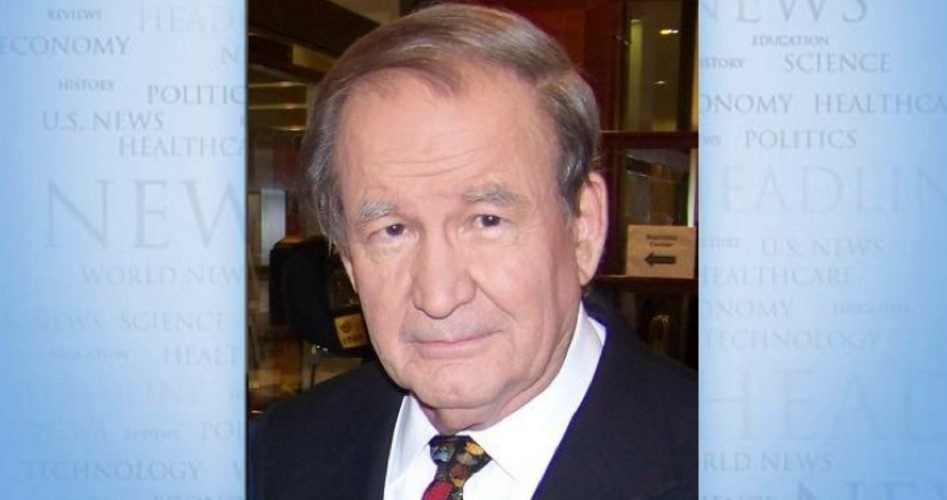
Under fire for his handling of the coronavirus pandemic, President Donald Trump, his campaign and his party are moving to lay blame for the 80,000 U.S. dead at the feet of the Communist Party of China and, by extension, its longtime General Secretary, President Xi Jinping.
“There is a significant amount of evidence” that the virus originated in a Wuhan lab, said Secretary of State Mike Pompeo last week.
Trump himself seemed to subscribe to the charge:
“This is worse than Pearl Harbor. This is worse than the World Trade Center. There’s never been an attack like this… It could have been stopped in China. It should have been stopped right at the source.”
There is talk on Capitol Hill of suspending sovereign immunity so China may be sued for the damages done by the virus that produced a U.S. shutdown and a second Great Depression where unemployment is projected to reach near the 25% of 1933.
The Trump campaign has begun to target the Democratic nominee as “Beijing Biden” for his past collusion with China and his attack on Trump for “hysterical xenophobia” when Trump ended flights from China.
What is the historical truth?
On China, Trump is the first realist we have had in the Oval Office in decades. But both parties colluded in the buildup of China as she vaulted over Italy, France, Britain, Germany and Japan to become the world’s second power in the 21st century.
Both parties also dismissed Chinese trade surpluses with the U.S., which began at a few billion dollars a year in the early 1990s and have grown to almost $500 billion a year. Neither party took notice until lately of our growing dependency on Beijing for products critical to our defense and for drugs and medicines crucial to the health and survival of Americans.
The mighty malevolent China we face today was made in the USA.
But what do we do now? Can we coexist with this rising and expansionist power? Or must we conduct a new decades-long Cold War like the one we waged to defeat the Soviet Empire and Soviet Union?
The U.S. prevailed in that Cold War because of advantages we do not possess with the China of 2020.
From 1949-1989, a NATO alliance backed by 300,000 U.S. troops in Europe “contained” the Soviet Union. No Soviet ruler attempted to cross the dividing line laid down at Yalta in 1945. Nor did we cross it.
East of the Elbe, the Soviet bloc visibly failed to offer the freedoms and prosperity the U.S., Western Europe and Japan had on offer after World War II. America won the battle for hearts and minds.
Moreover, ethnic nationalism, the idea that separate and unique peoples have a right to determine their own political and cultural identity and destiny, never died in the captive nations of Europe and the USSR.
China today does not suffer from these deficiencies to the same degree. Unlike the USSR, China has four times our population. Where the USSR could not compete economically and technologically, China is a capable and dynamic rival of the U.S.
Moreover, if we begin a Cold War II with China, we would not be starting with the advantages Truman’s America, undamaged at home in World War II, had over Stalin’s pillaged and plundered land in 1945.
Where ethnic nationalism tore the USSR apart into 15 nations, today’s China is more of an ethno-nationalist state with Han Chinese constituting 1 billion of China’s 1.4 billion people.
There are millions of Tibetans, Uighurs, Kazakhs in southwest and west China, and tens of millions of Buddhists, Christians, Muslims, Falun Gong and other religious minorities. But China is unlike the multiracial, multiethnic, multicultural, multilingual Moscow-centered and Russian-controlled Soviet Empire and USSR that shattered after 1989.
China’s weaknesses?
She is feared and distrusted by her neighbors. She sits on India’s lands from the war of the early 1960s. She claims the whole South China Sea, whose waters and resources are also claimed by Vietnam, Malaysia, Singapore, Indonesia, the Philippines and Taiwan.
The peoples of Hong Kong and Taiwan fear that Beijing intends to overrun and rule them.
Even Vladimir Putin has reason to be suspicious as Beijing looks at the barren but resource-rich lands of Siberia and the Russian Far East, some of which once belonged to China.
China is thus a greater rival than the USSR of Stalin and Khrushchev and Brezhnev, but the U.S. is not today the nation of Ronald Reagan, with its surging economy and ideological conviction we would one day see the ideology of Marx and Lenin buried.
Three decades of post-Cold War foolish and failed democracy-crusading have left this generation not with the conviction and certitude of Cold War America, but with ashes in their mouths and no stomach to spend blood and treasure converting China to our way of life.
Photo of Patrick J. Buchanan: Bbsrock — Own work, CC BY-SA 3.0
Patrick J. Buchanan is the author of Nixon’s White House Wars: The Battles That Made and Broke a President and Divided America Forever. To find out more about Patrick Buchanan and read features by other Creators writers and cartoonists, visit the Creators website at www.creators.com.
COPYRIGHT 2020 CREATORS.COM



